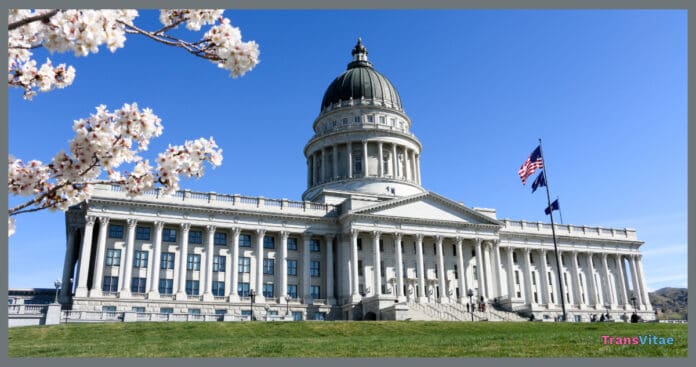As of this week, Utah’s governmental bodies and public institutions are required to enforce HB257, a controversial new law that restricts transgender individuals from using bathrooms and locker rooms that correspond with their gender identity. There are immediate implementation requirements for this law, which Governor Spencer Cox signed in January, and there has been a sizable public backlash.
The law mandates that any public school, state agency, or other publicly controlled facilities must comply with these restrictions, which define gender strictly based on biological sex at birth. The Utah State Auditor has been tasked with overseeing compliance, receiving complaints, and investigating any alleged violations by government entities.
On Wednesday, the State Auditor’s office launched a new feature on their complaint hotline website, allowing residents to report perceived violations. While this might seem like a move towards enforcing privacy and safety, it has opened Pandora’s box of ethical and privacy concerns.
Less than three days after the reporting tool went live, nearly 4,000 complaints were filed. However, Utah Auditor John Dougall revealed that all these complaints appear to be bogus, with many submissions evidently meant to protest the new regulations. This influx of joke and meme submissions underscores the public’s reaction to what many see as an invasive and discriminatory law.
The practical aspects of the law have also come under scrutiny. The requirement to categorize Utahns strictly by the reproductive organs they were born with not only challenges modern understandings of gender but also ignores the complex realities faced by transgender individuals. The stipulation that government agencies contact law enforcement over complaints about bathroom use adds another layer of potential discrimination and danger for transgender people, particularly in environments meant to be safe spaces like schools.
Furthermore, the implications for privacy are profound and disturbing. State Senator Jen Plumb criticized the inclusion of an option to attach images to complaints, highlighting the invasive nature of such measures and questioning the ethical ramifications of encouraging the public to police gender in such a direct and potentially harmful way.
Despite the clear intentions behind HB257, the early response has been overwhelmingly negative. The online form created by the auditor’s office was briefly left unprotected, leading to unauthorized public access to submitted complaints, including images and personal data, though this issue has since been addressed.
The broader implications of this law extend beyond just the transgender community; they touch on the rights to privacy and safety for all. The law’s rigid definitions of gender could also lead to misidentification and unwarranted scrutiny of cisgender individuals who do not conform to traditional gender expressions.
The backlash to HB257 is reminiscent of similar initiatives in other states, which have also faced public resistance. For instance, a “Transgender Center Concerns” hotline in Missouri was shut down after just a month due to overwhelming protest actions, including the submission of spam and irrelevant content by activists.
These reactions highlight a significant disconnect between the legislative actions of Utah’s government and the values and needs of its constituents. They also underscore the broader societal need for policies that respect and affirm the identities of all individuals, rather than creating divisive and discriminatory environments.
As this law continues to unfold, it will be crucial for all involved—lawmakers, enforcers, and the public—to consider the human impact of such policies. It’s a poignant reminder that laws designed to segregate and discriminate can lead to resistance and, ultimately, a call for greater empathy and understanding within our communities.


